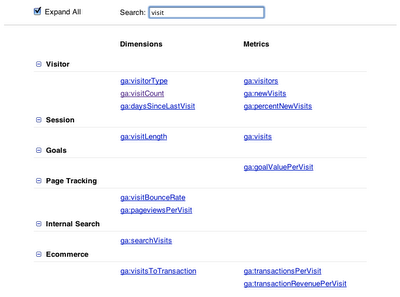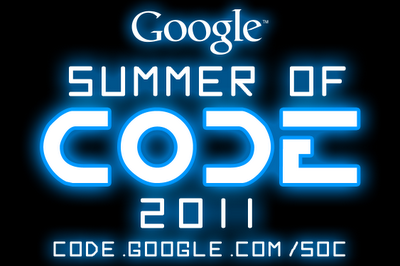One of our aims of the Google Analytics Data Export API is to provide access to all the data you find in our reporting UI. To that end, we are releasing 127 new dimensions and metrics via the API today!
Some of the powerful new data points are:
- Unique visitors – ga:visitors metric has been updated to support the true number of unique visitors for any date range (instead of the daily unique visitors). It also supports significantly more valid combinations.
- Organic Searches – The number of organic searches within a session.
- 10 new Adwords dimensions – Including Matched Query (what people searched for, not the bid term) and Placement Domain (which site you content ads were running on).
- Search Result Views – The number of times a search result page was viewed.
- 3 Time dimensions – To simplify plotting graphs.
We also included 111 calculated metrics to make it easy to query most common calculations in the reports, such as bounce rate, cost per conversion, and margin. Now, getting calculated metrics is both more convenient and in parity with the calculated metrics in the UI.
You can see a complete list of the new dimensions and metrics in our public changelog.
With all these dimensions and metrics, it can be time consuming to find the values you are looking for. To simplify this, we’re also launching a new interactive dimension and metric search tool. You can use this interactive tool to search for a dimension or metric using its search-as you-type feature. Even more exciting is the ability to easily determine valid dimension-metric combinations just by selecting the dimensions/metrics that you want to request. Here’s a screenshot:
We hope that you will find this new tool and additional data useful. As always, we look forward to hearing your feedback, in our developer group.

